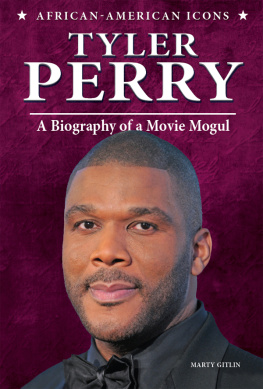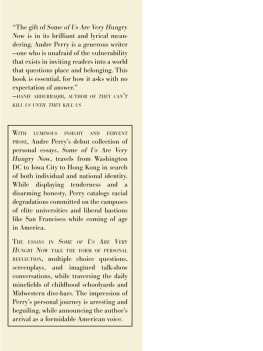Acknowledgments
My sincere, heartfelt gratitude is especially reserved for my immediate family. Without their full support during the writing of this book, in which they endured months of inconvenience as I isolated myself from them and forced them to virtually live on their own, this book would not have been possible. I am especially grateful to my wife, Teresita, who persuaded me to embrace this project and helped me see what a great story it really was, even though she knew it would cause us to live our own separate lives until it was finished. Thanks also to Kirsten and Sarah, who were always there when I needed them most!
A very special thank-you goes to Kevin James Bell, a very dear and close family friend who, through his love and devotion to me and my family, repeatedly came to my rescue and helped fulfill some of my duties and obligations when I was unable to do so myself, and for helping keep my family unit in top form during my self-imposed isolation. The world needs more people like Kevin!
I would also like to thank Chief Ronal Serpas, of the Metropolitan Nashville Police Department, along with his staff, for their cooperation during the writing of this book. I also want to acknowledge the dedicated work and service of Sergeant Patrick Postiglione and Detective Bill Pridemore, veteran homicide detectives who were named Metropolitan Nashville Police Departments Investigators of the Year for 2005 for their effort in bringing Perry March to justice and for providing closure to a case that, at times, seemed like it might never be solved, and to Captain Mickey Miller and Detective David Miller, retired.
I would also like to acknowledge the very fine work of the reporters at the Tennessean who followed this story day in and day out. It was through their great work that I was able to stay informed at a distance of the continuing developments of this fascinating case. Willy Stern also did an outstanding job in his two-part series A Good Thing Gone Bad, which appeared in the Nashville Scene, and whose work actually assisted the police in locating sources that they had been unable to find. Sterns articles were instrumental in providing a basis for some of the historical aspects concerning the March family. The Nashville City Paper, CBS News 48 Hours, Court TV, and the work of a number of other news agencies, too numerous to mention here, are all worthy of acknowledgment. Attribution is provided throughout the book where information from the aforementioned sources has been used. Thanks also to Jorge Jaramillo, of the Associated Press, for his assistance with the photos used in this book.
I also want to thank my longtime literary agent, Peter Miller, of PMA Literary & Film Management, for bringing Michaela Hamilton, Executive Editor at Kensington Books, and me together again for this project. Michaela bought and edited my first book, Blood Lust: Portrait of a Serial Sex Killer, in 1992, when she was at Penguin USA, and was instrumental in making it a great success. Michaelas integrity, professionalism, and business savvy in the publishing industry are without reproach, and I couldnt be happier working with her again.
Last, but definitely not least, I would like to gratefully acknowledge Stephanie Finnegan for the exceptional and thorough job she did copyediting the manuscript. Im sure that it was no easy task, but Stephanies effort and attention to detail served to greatly improve the final product. Thanks, Stephanie!
Chapter 1
The road to Nashville wealth, affluence, and fame is not an easy road to traverse, and is one that is often filled with broken deals, hardship, disappointment, and outright failure. Those who are able to scratch and claw their way out of the ranks of the masses to realize their dreams are few. To the average tourist, the social class divisions in Nashville are not readily apparent; quite the contrary, however, to those who reside there and are trying to make it to the top of the ranks by attempting to break out of the mold of the common folk. It is one thing to make it in Nashvillequite another to make it only to be literally chased out of townlike the Native Americans of the Mississippian culture, there one day and gone the next. But that is precisely what happened to financial attorney and self-proclaimed genius Perry Avram March.
Nashville, by and large, is a charming, friendly city, where people smile at each other and occasionally greet each other on the street, as is somewhat common among Southerners. Most of the lifelong residents have more than a bit of a Southern twang in their voices, and it is relatively easy to spot the more recent transplants because, unless they are from the South, they lack the telltale accent. In the past decade Nashville has attracted a lot of Northerners. Nashvilles former mayor and the states current governor, Phil Bredesen, moved to Tennessee from Massachusetts in 1975. Homes are still moderately priced, and the cost of living is considered reasonable. Although it can be hot and humid, the weather, overall, is typically mild. Nashville is home to several major colleges and universities, including Vanderbilt, Meharry Medical School, Fisk, and Tennessee State. Although Nashville has become very cosmopolitan over the years and boasts a relatively low crime rate, compared to other cities of its population, it is, nonetheless, a metropolis that is not unlike many other cities of its sizebusy with traffic and tourists, the usual hustle and bustle of the rush hours, gang activity, graffiti and tagging, drive-by shootings, disappearances, and murders. In short, the unfriendly side of Nashville can easily chew you up and spit you out, and often does.
As with most tourist-intensive cities, the darker side of Nashville is glossed over and nearly hidden by the neon lights of the many nightclubs, performance stages, bars, and restaurants. In The District, located in the downtown area along Second Avenue and the historic Broadway area, disco la the 1970s and 1980s can be found at Graham Central Station; additionally, numerous restaurants, chic boutiques, and microbreweries are located there. The District is known as the liveliest entertainment area of the city. Music Row is a colorful area with its aspiring musicians, singers, songwriters, twenty-nine major record labels, 150 recording studios, and other diversions, and many who live there contend that it is the music industry that really drives the city and makes it interesting. Most people can be easily taken in by Nashvilles Southern charm, scenic beauty, great food, and the warmth of many of its people.
As residents of Nashville awoke on Thursday, August 15, 1996, the mercury was in the low 60s, and the humidity a comfortable 50 percent as its inhabitants sat down for their morning coffees and breakfasts. Although a light breeze stirred the sometimes stagnant air quality, the local weather reporters were predicting a high temperature of around 90 for later in the afternoon, with humidity levels reaching near 100 percentit would be sticky and miserable as the day wore on.
On that same day, Perry March, thirty-five, was still a successful Nashville lawyer employed at his father-in-laws firm, Levine, Mattson, Orr & Geracioti, and his beautiful, dark-haired wife, Janet Gail Levine March, thirty-three, an accomplished artist and childrens book illustrator, was still alive. They lived together in their mansion dream home, which Janet herself designed, situated on four acres on Blackberry Road, in the posh, upscale community of Forest Hills, located a few miles southwest of Nashville, sandwiched midway between Interstate 40 and Interstate 65. They resided there with their two beautiful children, five-year-old Samson, affectionately known as Sammy, and two-year-old Tzipora, named after her paternal grandmother, Zipora, and known as Tzipi. By all appearances, the children seemed happy, healthy, and contented, and enjoyed the companionship provided by their part-time Russian nanny, Ella Goldshmid, who adored them. When they werent with Ella, Sammy and Tzipi were often with their maternal grandparents, Lawrence Larry and Carolyn Levine, which allowed Perry and Janet the freedom they desired to get out and socialize with a circle of friends and acquaintances that included some of West Nashvilles most high-flying young Jewish couples. To those looking in from the outside, the Marches appeared to be a near-perfect family that had everything going for them and, materially at least, everything they could possibly want. That all changed, however, on that fateful day when Janet disappeared without a trace.



















